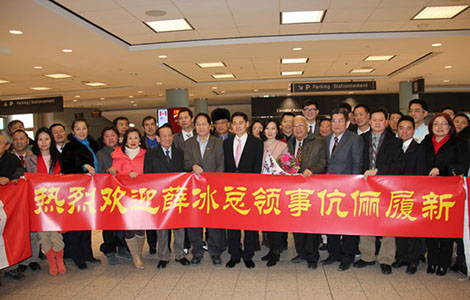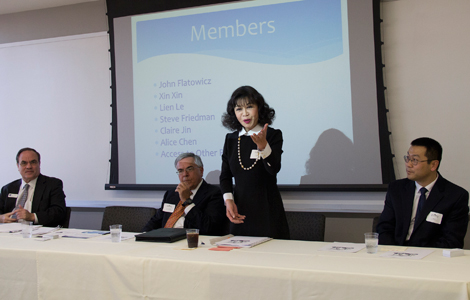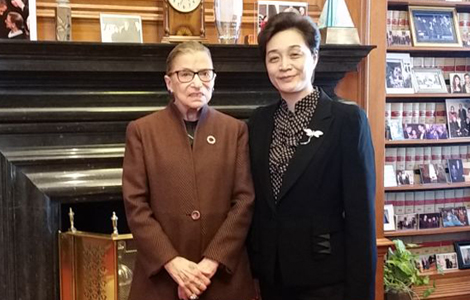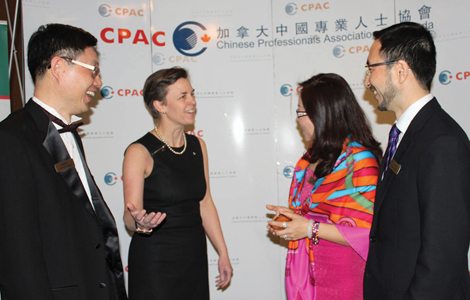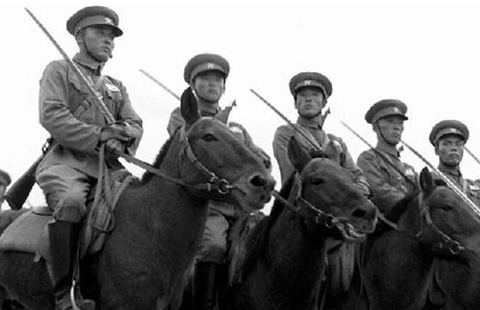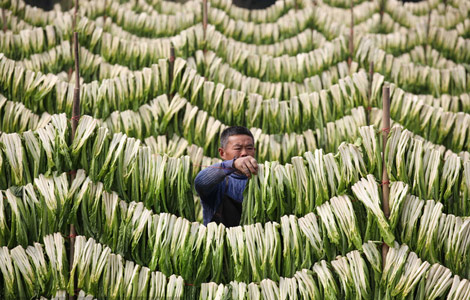India, US not 'power' wrestling: expert
Updated: 2015-01-29 12:58
By Chen Weihua in Washington and Zhao Shengnan in Beijing(China Daily USA)
|
||||||||
US experts have dismissed speculation over the geopolitics regarding US President Barack Obama's visit to New Delhi last weekend and next week's meetings in Beijing by foreign ministers from China, Russia and India.
Obama wrapped up his visit to India on Monday after attending the 66th Republic Day festivities. Much of the news reports have centered on how the US and India try to join hands to counterbalance a rising China.
Meanwhile, the Chinese foreign ministry announced on Wednesday that the foreign ministers of China, India and Russia will meet in Beijing next week for a 13th trilateral meeting on Feb 2.
The meeting will coincide with Indian Foreign Minister Sushma Swaraj's first visit to China since she took office, Chinese Foreign Ministry spokeswoman Hua Chunying told a daily briefing on Wednesday.
Swaraj's visit, scheduled for Jan 31 to Feb 3, will also be the first visit by a Cabinet minister of the Bharatiya Janata Party-led government to Beijing after India's Prime Minister Narendra Modi took office in May.
Jeffrey Bader, a senior fellow of the John L. Thornton China Center at the Brookings Institution, said he regards the meeting by foreign ministers of China, Russia and India as "an established mechanism" and "completely normal".
"The question of course always is what they will discuss, what conclusions will they reach. I think that's more important than the fact of the meeting, which is normal," Bader, a senior assistant to Obama for national security affairs at the National Security Council from 2009 to 2011, told China Daily on Wednesday.
He interpreted Obama's trip to India as designed to bring US-India relations to a new stage. "I think it was very successful in its optics and symbolically. How much that means will remain to be seen," he said.
Bader quoted US officials as saying that the Obama-Modi meeting is not about China. "There were discussions of strategic issues and East Asian issues, including China, but that was not the principal purpose of the visit," he said.
"The fact that the US tries to build better relations with the second most populous country in Asia is not a surprise," he said, adding that he didn't see anything during Obama's visit that suggested an alliance or cooperation or a new character on military issues directed at China.
"I don't see that. And I don't think either the US or India is interested in that," he said.
Former US Ambassador to China Stapleton Roy also dismissed the idea that Obama's second trip to India as president means that the US and India are being drawn together by their common concerns over a rising China.
"Putting undue emphasis on this aspect of US-Indian relations obscures the many other reasons why India and the United States wish to strengthen their relationship," Roy said.
Roy said the two countries shared many common interests, such as boosting trade and the Middle East. He said earlier efforts to revitalize the US-Indian relationship under President George W. Bush had fallen short of the hopes on both sides, in part because of India's reluctance to be - or to be seen as - a pawn in great power maneuvering between the US and China.
"With India under new leadership, it made sense for the two countries to try to put the relationship on a more stable basis for longer term cooperation," Roy said.
"The results of Obama's visit, particularly the 'Joint Vision' statement with regard to the Asia Pacific, suggest that they found such a basis in an approach compatible with the interests of both countries in improving their respective relations with China," Roy said.
"This is a healthy development."
Roy, founding director emeritus of the Kissinger Institute on China and the United States at the Wilson Center, said certain aspects of Obama's visit to India were taken out of context.
He described the November summit in Beijing between Obama and Chinese President Xi Jinping as injecting positive momentum to the further development of Sino-US relations.
"This was not aimed at India or any other country. In my view, it would be wrong to interpret President Obama's visit to India as a form of geopolitical wrestling between China and the United States," he said.
Fu Xiaoqiang, an expert on South Asian studies at the China Institutes of Contemporary International Relations, said the coming three-way meeting between China, Russia and India would focus on exchanging views on regional security.
The three countries currently cooperate on a range of issues, including industry, trade, agriculture, emergency relief and healthcare, and are also members of various key organizations such as BRICS
Contact the writers at chenweihua@chinadailyusa.com and zhaoshengnan@chinadaily.com.cn.
(China Daily USA 01/29/2015 page1)
Most Viewed
Editor's Picks

|

|

|

|

|

|
Today's Top News
China's train makers to court investors on road show
US, China expected to lead on climate talks
Weighing in on justice in China
China wants US to help build trust on maritime disputes
Yahoo to spin off Alibaba shares
China opens market to all US apples
Parade will commemorate victory over Fascism
Expatriates to be lured for startups
US Weekly

|

|
